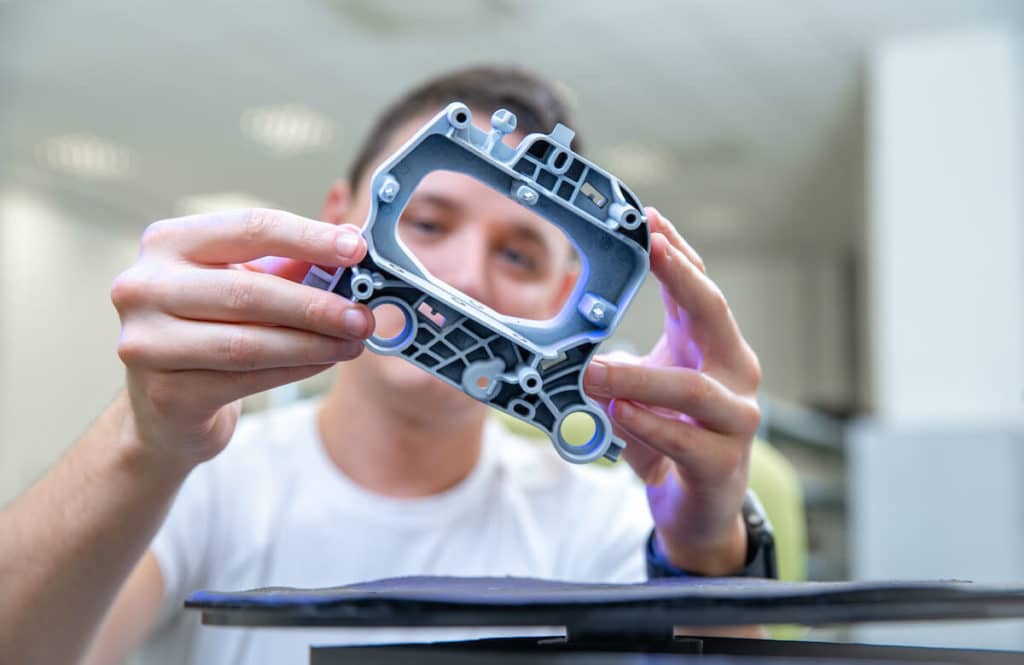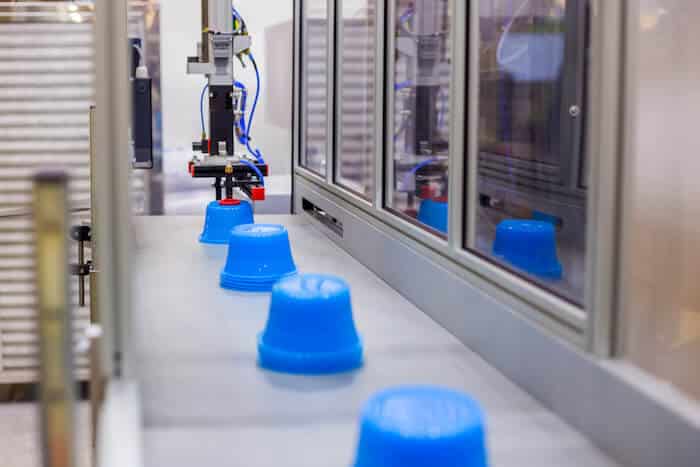Silicone is a versatile and essential material in modern manufacturing, valued for its durability, flexibility, and chemical resistance. It plays a pivotal role in sectors such as healthcare, consumer products, automotive components, and industrial applications, where high-performance materials are crucial. The global silicone market is projected to reach $35.9 billion by 2033, and for small and medium-sized businesses (SMBs), this expanding market presents significant opportunities.
However, to capitalize on this growth, SMBs must adeptly navigate a complex landscape of manufacturers, materials, and compliance standards to ensure product quality and scalability. This guide delves into key considerations for selecting a silicone manufacturer, including material selection, molding processes, supplier evaluation, and regional manufacturing factors. Whether you’re producing food-safe silicone products, medical-grade components, or high-performance industrial parts, choosing the right manufacturing partner is essential for long-term success.
Key Takeaways
- Choosing the right silicone manufacturer is essential for ensuring product quality and compliance across industries like medical, automotive, and consumer goods.
- Different silicone types, such as Liquid Silicone Rubber (LSR) and High-Consistency Rubber (HCR), serve specific applications, so selecting the appropriate material is crucial.
- Evaluating manufacturers based on certifications, production capabilities, and regional advantages helps SMBs optimize costs and ensure compliance in their silicone products.
What is Silicone?
Silicone is a highly adaptable material used in sectors such as healthcare, automotive manufacturing, food production, and industrial engineering. Derived from silica (sand), it is valued for its durability, flexibility, and resistance to extreme temperatures (-60°C to 300°C), which makes it an essential material in custom silicone manufacturing. Unlike traditional plastics, silicone rubber maintains its mechanical and chemical stability in harsh environments, making it ideal for high-performance applications.
With a silicon-oxygen backbone, silicone offers excellent thermal stability, water resistance, and electrical insulation, making it useful in components like gaskets, tubing, adhesives, and coatings. Many custom silicone products are developed for medical, industrial, and consumer applications, with manufacturers specializing in liquid silicone rubber (LSR), high-consistency rubber (HCR), and room-temperature vulcanizing silicone (RTV) to meet specific needs.
Beyond its mechanical properties, silicone is also biocompatible and food-safe, making it a preferred choice for medical-grade silicone products such as implants, respiratory masks, and surgical tubing, as well as food-grade applications like baking mats, baby bottle nipples, and food storage containers. High-quality silicone manufacturers ensure strict quality control, meeting industry standards like ISO 9001, FDA, and REACH compliance.

Types of Products That Use Silicone
Silicone is widely used in both fully molded products and hybrid designs that combine it with other materials. Understanding the role of silicone in a product helps businesses select the right custom silicone manufacturer and optimize manufacturing processes for durability, safety, and performance.
Fully Silicone Products
Some products are made entirely of silicone rubber because of its flexibility, heat resistance, and non-porous surface. These are especially valuable in hygiene-sensitive applications where materials must withstand frequent cleaning and exposure to moisture without degrading.
Examples include food-grade kitchen tools like baking mats, spatulas, and oven mitts, which benefit from heat resistance and easy cleaning. In personal care, baby bottle nipples, pacifiers, and menstrual cups rely on silicone’s non-toxic and bacteria-resistant properties.
Medical-grade silicone is commonly used in respiratory masks, tubing, and wearable medical devices, as it is biocompatible, sterilizable, and long-lasting. These properties make fully silicone products ideal for industries requiring safety, durability, and compliance with strict regulations.
Hybrid Silicone Products
Silicone is often combined with metals, plastics, and glass to enhance strength, flexibility, or resistance to extreme conditions. Many automotive and industrial components rely on silicone seals, gaskets, and coatings to withstand temperature fluctuations and chemical exposure.
In electronics, silicone elastomers provide thermal insulation, moisture protection, and impact resistance in circuit boards and semiconductors. Medical devices often integrate custom silicone components to improve comfort, flexibility, and biocompatibility in wearable health products.
Hybrid products benefit from custom silicone manufacturing techniques like over-molding and co-molding, which ensure seamless integration with other materials while maintaining structural integrity and performance.
Advanced & High-Performance Silicone Applications
Beyond consumer and industrial goods, silicone solutions are crucial in aerospace, medical implants, and energy technology. These high-performance applications require strict quality control, advanced molding techniques, and regulatory compliance to meet industry standards.
- Aerospace & Defense: Used in seals, gaskets, and coatings to endure extreme heat, altitude changes, and harsh environments.
- Medical Implants & Devices: LSR is a preferred material for implants, prosthetics, and surgical tools due to its biocompatibility and sterility.
- Energy & Electronics: Found in high-voltage insulators, thermal management systems, and flexible circuit boards, ensuring stability and efficiency in extreme conditions.
Key Factors When Choosing a Silicone Manufacturer
Finding the right silicone manufacturer is critical for businesses developing custom silicone products that require high-quality standards, production efficiency, and regulatory compliance. The global silicone industry is highly specialized, and selecting the wrong silicone supplier can lead to delays, quality issues, and increased costs. A well-qualified custom silicone manufacturer should offer scalability, material expertise, and the ability to meet customer requirements for medical-grade, industrial, and consumer applications.
To ensure seamless custom silicone manufacturing, businesses must carefully evaluate material selection, manufacturing processes, certifications, production capabilities, and quality control. Each of these factors directly impacts product performance, production timelines, and long-term scalability.
Choosing the Right Silicone Material
Choosing the right silicone material is one of the most important considerations when selecting a custom silicone manufacturer. The two primary material types, Liquid Silicone Rubber (LSR) and High-Consistency Rubber (HCR) serve different functions and require distinct manufacturing processes.
LSR is commonly used in medical devices, food processing, and high-precision applications due to its ability to be injection molded. This material offers excellent chemical resistance, biocompatibility, and flexibility, making it a preferred choice for medical implants, baby products, and food-safe silicone products. The automated injection molding process associated with LSR manufacturing allows for fast delivery, consistent quality, and high-volume production.
HCR, on the other hand, is better suited for industrial applications, automotive components, and high-temperature environments. This material is processed using compression molding, which offers cost-effective manufacturing for gaskets, seals, and high-durability silicone products. Businesses requiring custom silicone solutions for extreme molding environments often turn to HCR manufacturing due to its mechanical strength and heat resistance.
RTV Silicone is another option, commonly used for coatings, adhesives, and prototyping applications. This material is valuable in custom silicone manufacturing where flexibility and strong adhesion are required. Selecting the right silicone elastomers ensures that silicone manufacturers can meet the specific needs of different industries while maintaining product quality and compliance.

Choosing the Right Silicone Manufacturing Process
The manufacturing process used to create custom silicone products significantly impacts cost, efficiency, and final product quality. Partnering with a silicone manufacturer that specializes in the appropriate production techniques is essential.
Injection molding is widely used in LSR production, allowing for high-precision, repeatable manufacturing of medical devices, food-contact products, and wearables. This process ensures tight tolerances, consistent quality, and scalability for high-volume production.
Compression molding is preferred for industrial components, seals, and automotive gaskets, as it provides cost-effective fabrication for low-to-mid volume runs. Businesses requiring custom silicone solutions for rugged, high-temperature environments often opt for compression molding to maximize durability.
Extrusion molding is ideal for silicone tubing, electrical insulation, and continuous silicone seals, producing long-form silicone components with precise specifications. This technique is commonly used in medical, aerospace, and industrial applications, where silicone materials must withstand harsh environments and extreme conditions.
Manufacturing Certifications & Compliance
Selecting a silicone manufacturer that meets industry certifications and regulatory standards is vital for ensuring product safety, quality, and compliance. The highest standards of silicone manufacturing require adherence to FDA, ISO, and environmental regulations that vary by product type and market.
FDA approval is required for medical-grade and food-safe silicone products, ensuring compliance with safety and health regulations. ISO 10993 certification is necessary for biocompatible silicone elastomers used in medical implants, prosthetics, and surgical tools.
For businesses operating in global markets, ISO 9001 certification is essential for ensuring quality management and process control. REACH and RoHS compliance are required for chemical safety and environmental impact regulations, particularly for European manufacturing and sustainable silicone solutions.
A reputable silicone supplier should provide comprehensive documentation, testing reports, and factory audits to verify compliance. Businesses that prioritize certified manufacturers will benefit from consistent product quality, reduced risk of recalls, and improved customer confidence.
Production Capabilities & Scaling Potential
A silicone manufacturer’s ability to scale production efficiently is essential for businesses looking to expand their product range. The ability to transition from low-volume prototyping to high-volume production determines whether a manufacturer can meet growing customer demand.
Automated LSR molding enables fast delivery, reduced waste, and high-repeatability manufacturing, making it ideal for scalable medical, consumer, and industrial applications. High-volume manufacturers should also offer custom molding solutions tailored to specific product requirements.
Choosing a custom silicone manufacturer with advanced production capabilities, multi-region sourcing, and supply chain flexibility ensures that businesses can scale production efficiently without compromising quality.
Quality Control & Intellectual Property Protection
Maintaining strict quality control is non-negotiable when working with a custom silicone manufacturer. Quality control measures should include material testing, defect analysis, and in-process inspections to ensure that every silicone product meets performance and regulatory requirements.
For businesses developing innovative products, intellectual property (IP) protection is also a major concern. While China dominates the silicone manufacturing industry, companies looking for better patent security often turn to U.S. and European manufacturers for stronger IP protection and legal enforcement.
Working with a trusted silicone manufacturer that offers non-disclosure agreements (NDAs), proprietary molding solutions, and secure prototyping processes helps businesses safeguard designs and prevent counterfeiting. Companies producing high-performance silicone components must ensure that both quality control and IP protection are fully integrated into their manufacturing strategy to avoid risks.

Comparing Global Silicone Manufacturing Hubs
SMBs must evaluate regional trade-offs—balancing cost, compliance, and logistics—when selecting a custom silicone manufacturer. Each global manufacturing hub offers unique advantages and challenges, making it essential to understand these differences before making a decision.
China
China remains a dominant player in silicone manufacturing, offering extensive production capacities and competitive pricing. However, recent U.S. trade policies have introduced additional tariffs on Chinese imports, including a 10% tariff implemented on February 4, 2025, which was subsequently increased to 20% on March 4, 2025, according to Reuters. These escalating tariffs exacerbate existing trade tensions and can increase costs for U.S. companies importing silicone products from China, necessitating a careful assessment of overall expenses and supply chain strategies.
Mexico
Mexico’s extensive network of free trade agreements, including the United States-Mexico-Canada Agreement (USMCA), has historically facilitated smoother trade relations and reduced tariffs for businesses operating within these regions.
On March 4, 2025, the U.S. announced a 25% tariff on most imports from Mexico, citing concerns over illegal immigration and drug trafficking. However, as of March 7, the administration temporarily paused these tariffs for goods covered under the USMCA until April 2, 2025. This creates short-term uncertainty for businesses considering Mexico as a manufacturing hub.Despite these challenges, Mexico’s strategic location and existing trade agreements continue to offer potential benefits for small and medium-sized businesses seeking alternative manufacturing hubs.
Europe
Europe is recognized for its advanced manufacturing processes, robust environmental and labor protections, and premium quality control. These attributes make it an excellent choice for medical devices, high-performance industrial parts, and premium consumer products. However, higher operational costs and limited large-scale production capacity can be drawbacks. Additionally, the U.S. has threatened to impose 25% tariffs on EU imports, which could lead to severe economic consequences, including reduced growth and increased inflation. Europe’s commitment to high standards ensures exceptional product quality and regulatory compliance.
Strategies to Help SMBs Select the Right Silicone Manufacturer
Choosing the right custom silicone manufacturer is essential for ensuring product quality, compliance, and long-term scalability. With many factors to consider—material selection, production capabilities, and trade regulations—SMBs need a structured approach to making informed decisions. Below are key strategies to help businesses navigate the selection process and establish a strong manufacturing partnership.
Prototype & Material Testing Before Committing
Before finalizing a silicone supplier, testing materials and prototypes is critical. Requesting sample molds, material durability tests, and small-batch runs allows businesses to evaluate product flexibility, longevity, and performance under real-world conditions.
Prototyping also mitigates the risk of intellectual property theft, ensuring proprietary designs remain protected before entering full-scale production. Iterative prototyping based on user feedback enhances design quality and market readiness.
Evaluating Trade-Offs in Global Manufacturing Hubs
The choice of manufacturing location affects cost, compliance, and supply chain efficiency. While China dominates in low-cost, high-volume production, rising tariffs and IP concerns pose challenges. The U.S. offers strong IP protections and high-quality production but at a higher cost. Mexico, benefiting from the USMCA agreement, provides strategic nearshoring options, though recent tariff uncertainties must be considered.
Understanding the impact of trade policies, shipping costs, and regional regulations helps businesses weigh trade-offs effectively and select the most cost-effective sourcing strategy.
Leveraging Expert Networks to Vet Suppliers
Working with trusted sourcing platforms can simplify supplier selection and reduce risks. Industry networks, trade organizations, and manufacturing platforms like Gembah connect businesses with vetted silicone manufacturers that meet quality and compliance standards.
Engaging in supplier audits, third-party reviews, and factory visits helps ensure consistent production quality, ethical labor practices, and long-term reliability.
The Key to a Successful Silicone Manufacturing Partnership
Establishing a strong manufacturing partnership requires more than just cost analysis—businesses must ensure material quality, regulatory compliance, and supply chain resilience. By carefully selecting a trusted silicone manufacturer, SMBs can secure cost-effective production, reliable delivery timelines, and scalable growth opportunities.

Frequently Asked Questions
What industries benefit most from silicone manufacturing?
Medical devices, automotive parts, consumer goods, and industrial applications widely use silicone because of its durability, flexibility, and resistance to heat and chemicals. Transportation, construction, healthcare, aerospace, personal care, and electronic device industries benefit greatly from silicone’s versatile properties.
What’s the difference between Liquid Silicone Rubber (LSR) and High-Consistency Rubber (HCR)?
LSR is used for high-precision, automated molding, making it perfect for medical devices and other applications needing accuracy and consistency. Conversely, HCR is more durable and used in industrial seals and high-temperature applications where robustness is essential. Both materials offer specific advantages, and the choice depends on product requirements and intended use.
How do I ensure my silicone manufacturer meets compliance standards?
Verify that your manufacturer holds FDA, ISO 9001, and ISO 10993 certifications, depending on your product type. Request factory audits, material testing reports, and supply chain transparency to confirm compliance. For medical devices and food-safe products, ensure adherence to ISO 13485, CE marking, and REACH regulations to meet industry and regional safety standards.
Why is China a dominant silicone manufacturer, and what are the risks?
China’s low-cost production and high manufacturing capacity make it a dominant player in the silicone industry. However, businesses must navigate IP protection concerns, lead time delays, and quality inconsistencies when working with Chinese manufacturers. Recognizing these risks is essential for making an informed manufacturing decision in China.
What are the best alternatives to China for silicone manufacturing?
The U.S. is ideal for high-quality, FDA-compliant production with strong IP protection, though at a higher cost. Mexico, benefiting from USMCA trade agreements, offers nearshoring advantages but faces tariff uncertainties. Europe provides strict regulatory compliance and premium quality control, making it a strong choice for medical and industrial applications. The best option depends on cost, compliance needs, and supply chain priorities.



